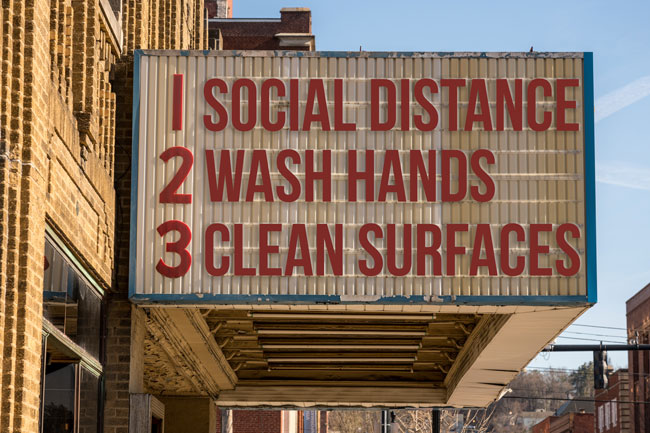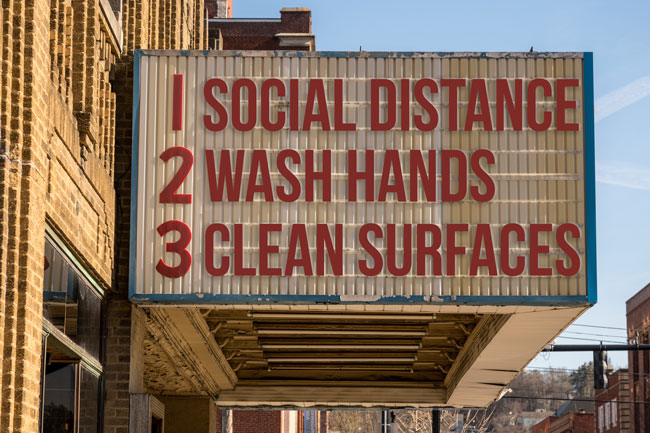 Tighter restrictions are being imposed on provinces in Canada and in cities around the world, as countries attempt to cope with the impact of the novel coronavirus known as COVID-19.
Tighter restrictions are being imposed on provinces in Canada and in cities around the world, as countries attempt to cope with the impact of the novel coronavirus known as COVID-19.
During this period, Canadian Black Book has been sending out weekly updates to help Canadian dealers better understand the ever-evolving situation and the impact it will have on the automotive industry and our economy. Canadian auto dealer caught up with Brian Murphy, Vice President of Research & Analytics at Canadian Black Book, to review some of the changes within the past week.
Auctions
One of the biggest changes so far can be found in the auction space. Last week, Murphy said Canadian Black Book watched multiple auctions in Canada due to everyone moving to video broadcast without the in-person bidding. Auctions (electronically) were well attended he said, but Murphy indicated that it would be a while before the market as a whole came to a new understanding of what the prices are.
“We did notice that there was a higher than average percentage of no-sales at the auction,” said Murphy. “But now the new wrinkle is — as provinces are starting to ask all non-essential services to close, these Simulcast auctions presumably are going to be fewer in number.”
It’s worth noting that as of March 20, KAR Global halted its physical sales operations at all ADESA locations in North America for a minimum of two weeks — including its Simulcast-only sales. With fewer or no Simulcast auctions, Murphy said the only other option available is a purely digital auction where the vehicles “never really do runs through the lanes.”
“That’s a big change to the market because a very large chunk of wholesale vehicles still go through physical auctions in Canada,” said Murphy. “We did watch these all very carefully to see what the effect was on values, and after looking at the data, what we did know was that there weren’t any big changes.”
Some vehicles were up and some were down, said Murphy, but ultimately it will take time before the dust settles — and before buyers and sellers come to a new understanding of what the price should be.
Essential services
Between the evening of March 23 and March 24, Ontario premier Doug Ford and Quebec premier François Legault made separate statements about the closure of non-essential businesses. In Ontario, car dealerships may remain open, while in Quebec some dealerships appear to be in the grey zone.
“As I was writing this, Ontario and Quebec were issuing orders mandating the closure of all non-essential services. So my understanding right now is that in Quebec that does include sales for dealerships. But in Ontario, I did receive clarification that sales at dealerships can still remain open,” said Murphy.
Canadian auto dealer also reached out to CADA Economist Oumar Dicko, who confirmed that physical sales operations in Quebec are deemed non-essential services. Dealer showrooms in the province must remain closed, however service departments can remain open for service and maintenance, and online sales are still allowed.
As of Canadian Black Book’s March 24 update, retail sales in Canada for the month of March are expected to fall by more than 60 per cent. To compare, China and Italy both experienced 80 per cent sales decreases in February.
“No matter how you look at this, for March you might see one of the single largest declines in one month since anyone has been keeping numbers,” said Murphy.
He is also projecting a recession for the Canadian economy due to the COVID-19 situation. In his March 18 news release, Murphy originally offered a best-case scenario, along with a recession and severe recession scenario. As of the company’s March 24 news release, the best-case scenario was thrown out the door, and they are projecting a likely mild recession scenario (although a severe case has not been ruled out either).
The mild scenario would look something like this: negative GDP growth in the first to third quarter may lead to a significant decline in consumer confidence, and a large increase in unemployment. This in turn will lead to a 25 per cent decline in new vehicle sales to 1.44 million units in 2020. In comparison, the worse-case scenario would result in a deep recession with a 40 per cent drop in new vehicle sales to 1.15 million units in 2020.
Advice to dealers
Asked what advice he can offer to dealers, Murphy said this is temporary and the business will bounce back.
“There are a lot of questions around how long it will take to bounce back, but it will come back,” said Murphy. “I see some dealerships closing out of an abundance of caution because they want to protect their customers and their staff, and I think that’s a good move from a safety standpoint. But I also think it’s a great time to be thinking about what you can do to look after your customers in an atypical time of crisis.”
If sales are closed, are dealers still able to assist customers that have a pressing need? If a customer’s car was in a collision or stolen, can dealers help them? And what about lease-end returns — what options can dealers offer to help consumers?
“It’s a bit beyond values, but what can you do to look after the customer?” said Murphy. “Hopefully they will remember that you’ve assisted them in some trying times, and you might have a customer for life.”


















